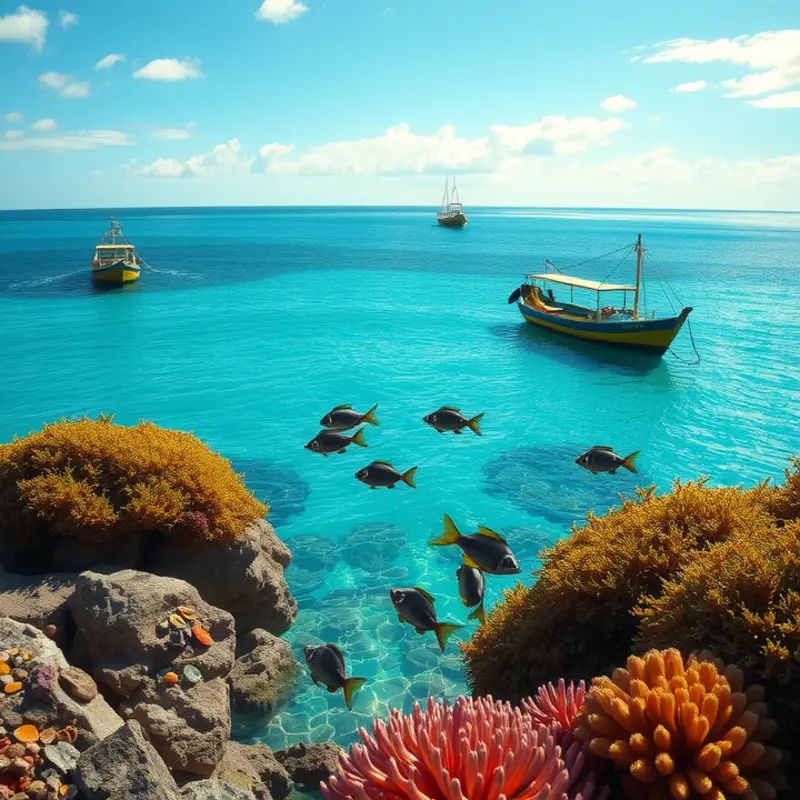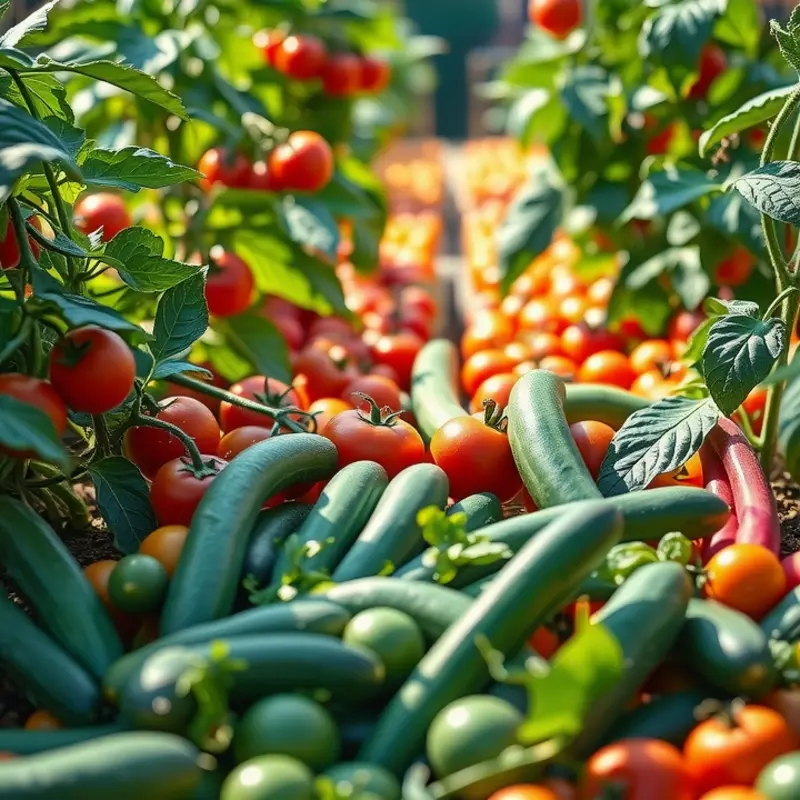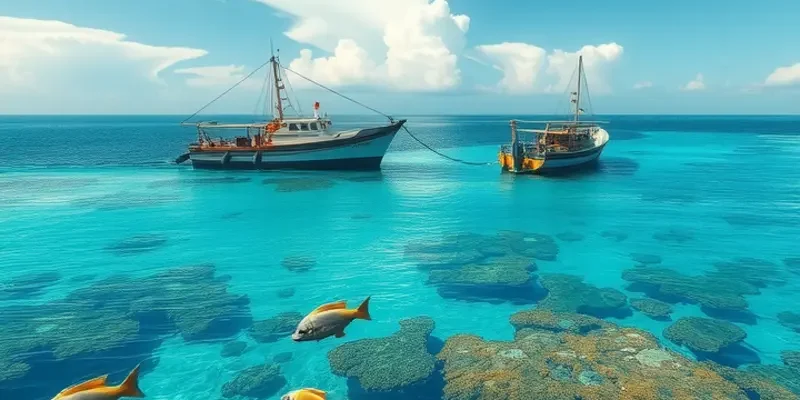As stewards of the Earth, our daily food choices can significantly impact marine life. By opting for sustainable seafood, reducing waste, and supporting eco-friendly farming practices, you directly contribute to the health of our oceans. This guide aims to empower environmentally-conscious individuals like you to make informed food decisions that appreciate and protect marine ecosystems.
Sustainable Seafood: What You Need to Know

Choosing sustainable seafood is crucial for maintaining the balance of ocean ecosystems and ensuring the longevity of fish populations. Unsustainable fishing practices threaten marine life and can lead to the depletion of species, habitat destruction, and the disruption of local communities that rely on fisheries.
A critical part of sustainable seafood consumption is being able to identify which options are sustainable. You can do this by looking for certifications from reputable organizations that ensure the seafood has been responsibly caught or farmed. Labels you might encounter include those from the Marine Stewardship Council or Aquaculture Stewardship Council. These certifications indicate that certain standards in environmental performance, social responsibility, and good management have been met.
Sustainability in seafood is not only about the species itself but also the method used to catch or farm it. Some fishing techniques cause less environmental damage than others. “Pole and line” or “troll” fishing have minimal bycatch compared to methods like trawling. Bycatch refers to unwanted fish and other marine creatures caught during commercial fishing for a different species. Reducing bycatch can drastically decrease the negative impact on marine biodiversity.
Supporting fisheries that prioritize conservation plays a big role in the promotion of sustainable seafood. Sustainable fisheries are those that operate under fisheries management plans aiming to minimize environmental impact and are usually involved in initiatives to monitor fish populations.
Consumers also have a role to play in this ecosystem. Diversifying the types of seafood consumed can relieve pressure on popular species like tuna and salmon. By trying lesser-known fish, we can help balance the demand across species, supporting healthier populations and ecosystems.
To further encourage sustainability, consider where and how your seafood is processed and transported. Locally sourced fish often has a smaller carbon footprint due to less transportation. Moreover, mindful consumer habits, such as buying only as much as needed, can reduce waste and promote more responsible consumption patterns.
Engaging in sustainable seafood practices is a meaningful action towards preserving our oceans. As a consumer, your food choices can shed light on the health and future of the marine environment. By advocating for and practicing purchasing habits that support sustainability, you contribute to a balanced oceanic ecosystem that benefits not only marine life but human well-being. These efforts align with broader considerations of eco-friendly lifestyles, as seen in best practices for an “eco-smart kitchen storage“.
The Power of Plant-Based Choices

Adopting a plant-based diet not only holds the potential to enhance personal health but also plays a crucial role in preserving the integrity of marine ecosystems. Intensive fish farming is frequently lauded as a sustainable alternative to wild fisheries, yet it poses significant threats to ocean health. The high-density conditions often lead to disease outbreaks, which can spread to wild populations. Additionally, fish farms release waste, nutrients, and chemicals into surrounding waters, which can alter local ecosystems.
Shifting towards a diet rich in fruits, vegetables, legumes, and grains can substantially reduce the demand for overfished species and aquaculture products that damage the ocean’s balance. Such a dietary shift supports marine life by decreasing the market pressure on fish species, allowing ecosystems time to recover and thrive. Furthermore, plant-based foods generally require fewer natural resources like water and land, and they emit less carbon dioxide compared to livestock farming, indirectly benefiting the oceans by mitigating climate change effects like ocean acidification.
Integrating plant-based meals into your daily routine is simpler than it might seem. Begin with small, manageable changes such as implementing one meatless day per week. This practice, known as “Meatless Monday,” can become a stepping stone to more plant-focused eating habits. Explore hearty legumes like lentils and chickpeas as they are versatile and protein-rich, making them excellent substitutes for fish and meat in traditional recipes.
Embrace the variety within plant-based options by incorporating whole grains like quinoa and barley into your meals. These grains add texture and nutritional value, keeping meals satisfying and flavorful. Try experimenting with international cuisines known for their plant-centric dishes—Asian stir-fries, Middle Eastern mezze, or Mediterranean pasta with fresh tomatoes and herbs can redefine your meal experiences. For those seeking minimal preparation, this guide on practical ingredient batching provides useful tips to streamline meal prep.
Vegetables can also be hero ingredients. Roasting a medley of seasonal produce such as carrots, bell peppers, and zucchini can transform a mundane side dish into a vibrant main course. Incorporate greens like spinach and kale into smoothies or sauces for nutrient boosts, without compromising on taste.
For those hesitant about missing out on flavors, consider using herbs and spices to elevate plant-based dishes. Fresh basil, cilantro, and spices like cumin and paprika enhance taste without excess salt or fat. Creativity in the kitchen not only makes meals exciting but reinforces the commitment to compassionate dining.
Through conscious food choices, each of us can contribute to healthier oceans and a more sustainable planet. Embracing the bounty of what the plant kingdom offers is a powerful statement that supports marine biodiversity while fostering personal well-being.
Final words
Every food choice you make holds the potential to shape the future of our oceans. By opting for sustainable seafood and incorporating more plant-based meals into your diet, you make strides in preserving marine ecosystems. Each decision counts, fueling the momentum to protect delicate marine life for generations to come. With attention to our food sources, we can be champions of the oceans, ensuring they thrive alongside humanity. Let your plate reflect your values and be part of the solution for a more sustainable world.








